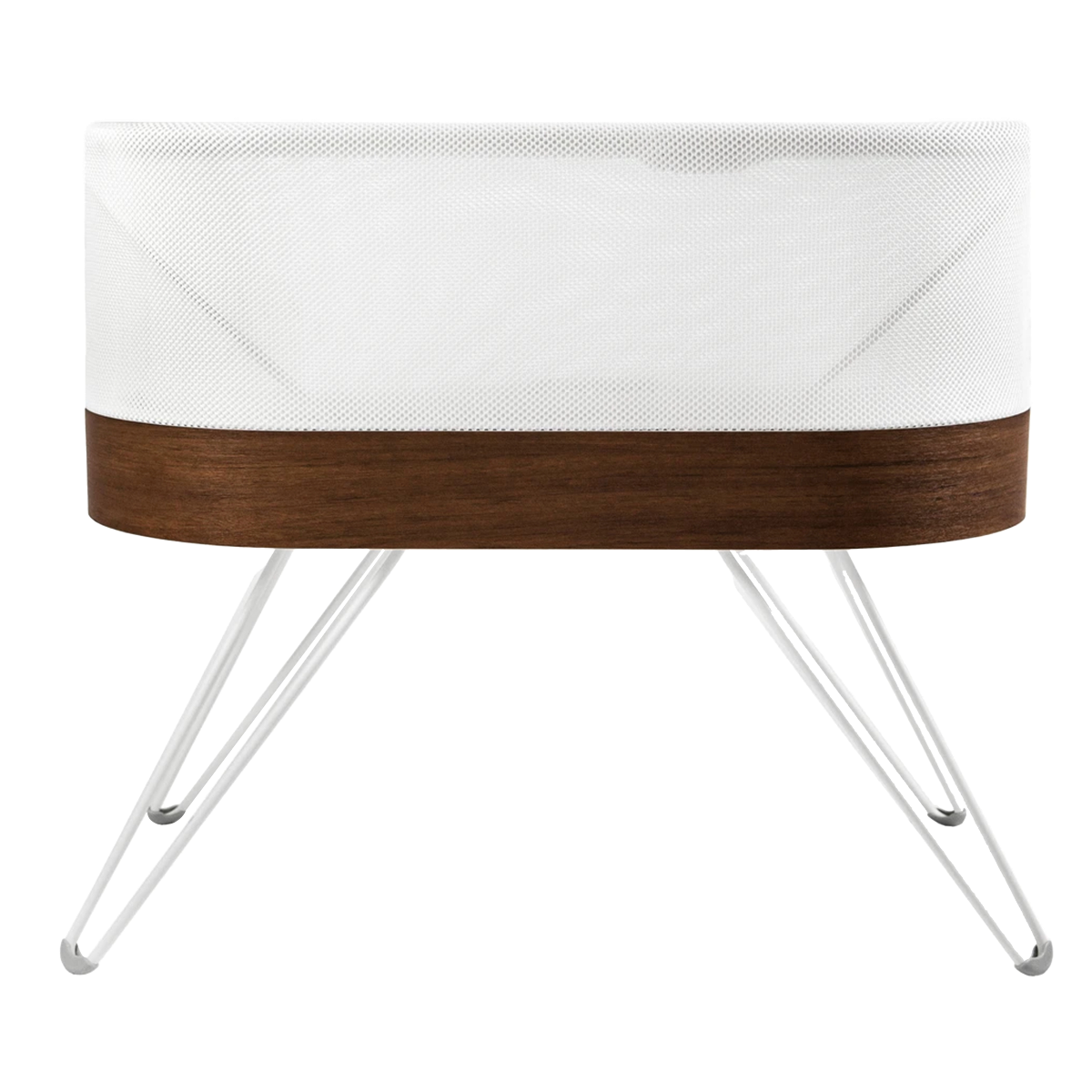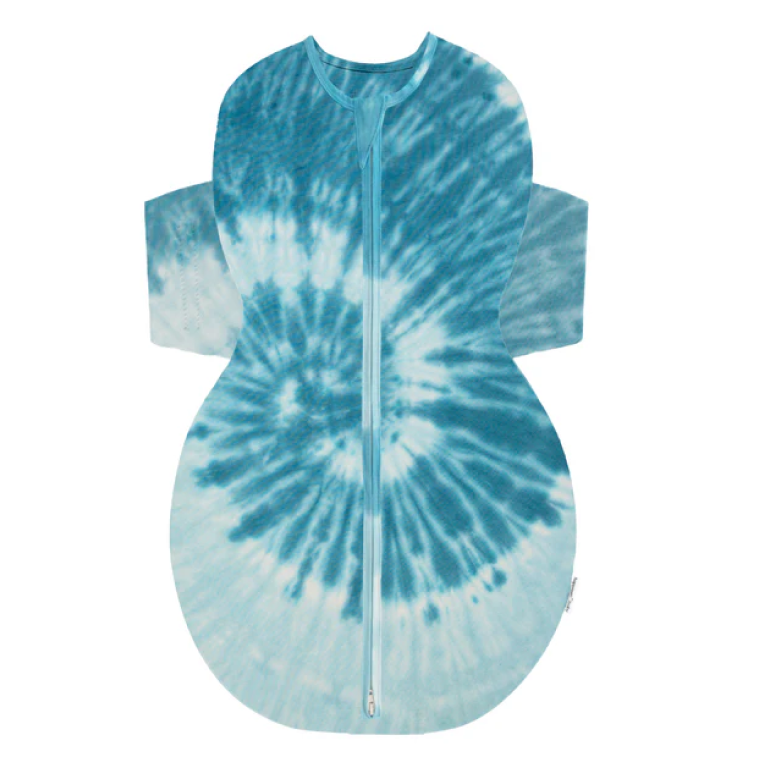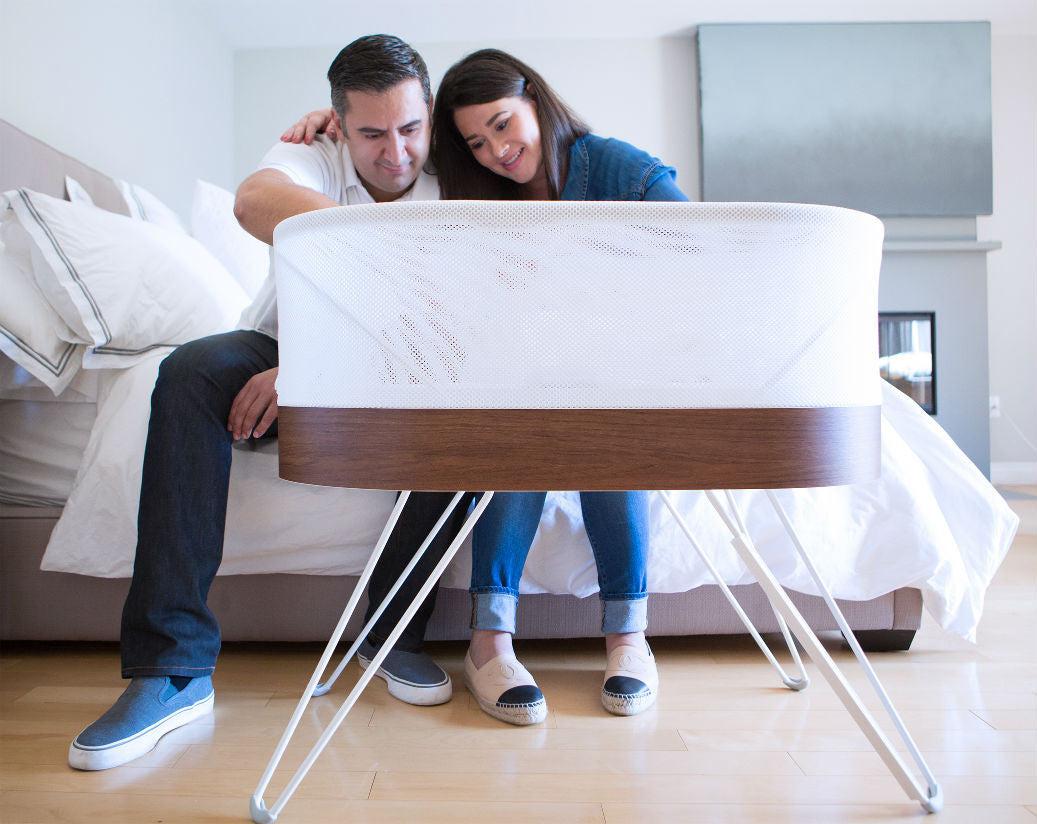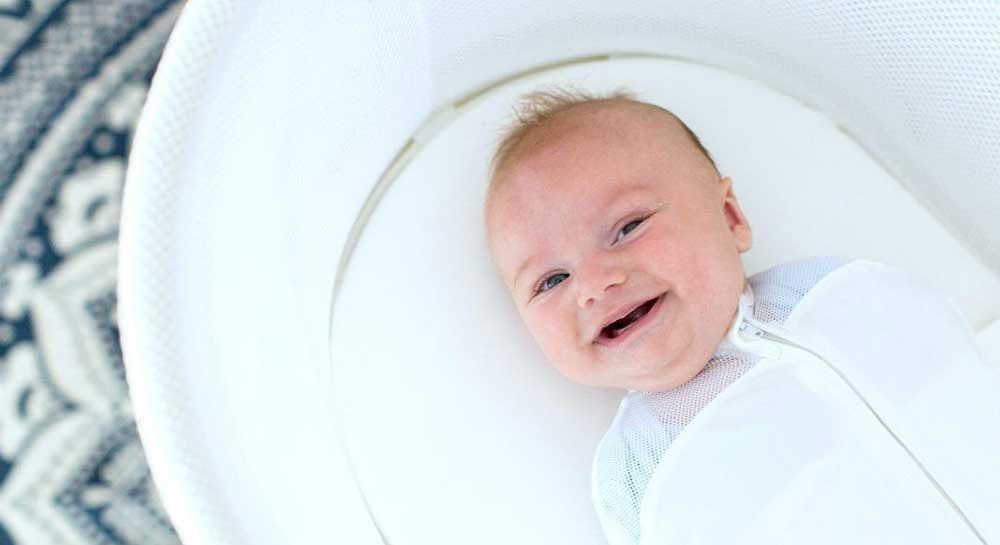SNOO
Preparing for a New Baby After Losing a Child
As this family prepares for a new baby, choosing a safe sleep environment is a top concern.

Written by
Happiest Baby Staff
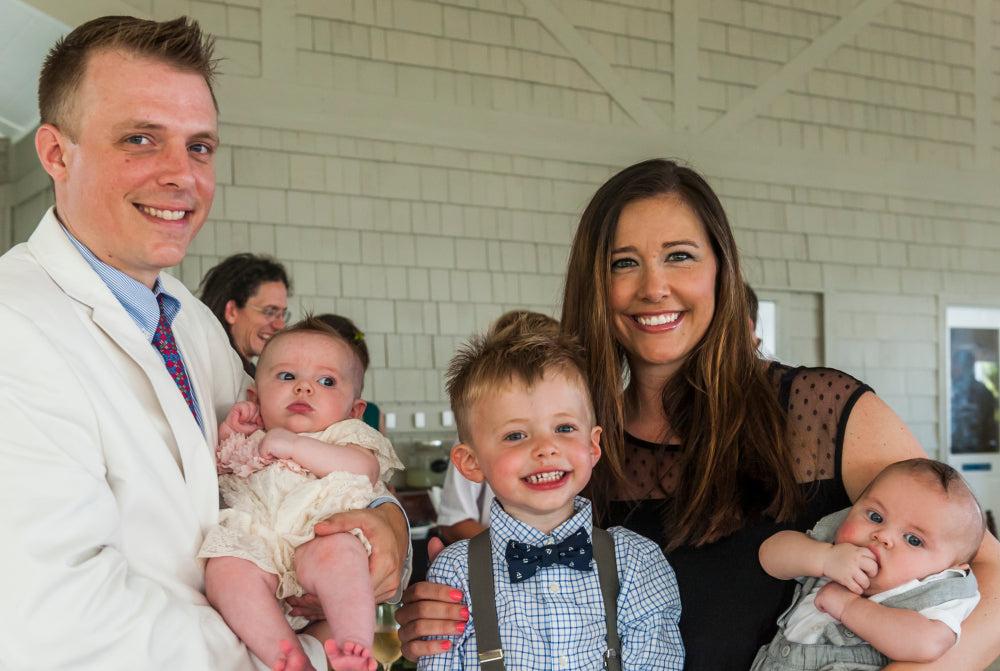
The sixth in a series of profiles of real people with real challenges…who were helped by SNOO.Kara is 34 weeks pregnant with her fourth child, and she openly shares that the new baby came as a surprise. It’s an important detail for understanding her story, but also, Kara believes that talking openly about her challenges as a mom can be helpful to others—especially when it comes to sharing her experience of losing her son Oliver to SIDS.
Kara’s SIDS Story: Losing Oliver
The day Oliver died started out as a joyous one. The family gathered for a morning photo session at a pretty lake near their West Virginia home. Kara works remotely as a community manager for Baby Tula, the maker of her favorite baby carriers. The company tapped Kara and her husband Trevor to model their gear with Oliver and Avery, the couple’s adorable 4-month-old twins. Their oldest son, Henry, was just 3 at the time and made his own fun, throwing handfuls of pebbles into the lake. To this day, Kara and Trevor cherishes the photos from that morning, including these beautiful shots with Oliver:
![[object Object]](https://cdn.sanity.io/images/301lhh0a/production/0567d5d244f1a2bbe04f386487c76cdb84752174-480x283.png?w=1080&auto=format&q=75&fit=max)
After finishing the shoot, Kara dropped the twins at their babysitter’s house. When naptime came, the sitter placed both babies on their tummies in their travel crib...something Kara had routinely done in the past. “I knew the risks of stomach sleeping, but as an exhausted parent, you’re almost ready to do anything to get your baby to sleep,” says Kara, who notes that her twins always slept best on their bellies.
In addition to stomach-sleeping, there was also a loose blanket in the babies’ sleep space. “It’s likely [a blanket] made it hard for him to breathe,” Kara says. And those two factors came together and resulted in tragedy: Oliver died that day.
Sleep Safety Awareness Is Important, But Not Enough
Kara, Trevor, and their babysitter are far from alone when it comes to putting babies to sleep on their stomachs. Research shows that only about 44% of moms surveyed always place their babies to sleep on their back—which is the recommended safest sleep position for infants. Part of the reason parents still turn to tummy sleeping: For lots of babies, belly sleeping is super-comfortable and helps them doze...and that’s part of the problem.
It’s thought that some babies sleep so soundly on their stomaches that it can be markedly more difficult for them to easily wake when their breathing enters a danger zone. (Stomach sleeping may obstruct Baby’s airway and cause them to “rebreathe” their own exhaled breath, also leading to breathing issues.)
“It’s critically important for pediatricians to help parents find new ways to boost their infants’ sleep,” says Dr. Harvey Karp, Happiest Baby’s founder and author of The Happiest Baby on the Block. “Raising awareness alone is clearly not solving the problem.”
To wit: In the 1990s, the Back to Sleep (now the Safe to Sleep) campaign implored all parents to only place babies to sleep on the back. And it was wildly successful, leading to a dramatic 50% reduction in SIDS cases in just five years. But since that initial drop, there has been no further progress. Each year since 1998, roughly 3,500 babies die in their sleep. About 20% die after rolling to or being placed on the stomach and 70% die after being put down in an unsafe sleep location.
These numbers make it clear: Beyond awareness, parents need help...plain and simple. “Parents can get so tired that they accidentally make mistakes when it comes to Baby’s sleep,” says Dr. Karp. “And, unfortunately, doctors have little to offer these exhausted parents.”
New Life After Loss
“When someone loses a baby to SIDS, most of the time they have no baby in the house anymore. But for us, that was not the case,” says Kara, who had Oliver’s twin to think about—along with her oldest son. And it was because of them that she and Trevor were able to keep going. “We had to come back and raise [our children],” says Kara.
Kara and Trevor credit an excellent grief counselor and online support group for helping, too. And now, they’re further buoyed by the hope and happiness that comes with expecting a new baby.
While Kara and Trevor sometimes talked about trying for another baby after Oliver’s passing, they were undecided. (They conceived all of their children through IVF.) But nature made this decision for them when Kara got pregnant. Another huge surprise: The new baby’s due date was the exact same as the twins’.
“I’m not a person who believes in signs or things like that,” says Kara. “But, you have to look at that as—in a way—that it was meant to be.”
Preparing for the New Baby
Kara and Trevor were ecstatic about their surprise, but they were also worried and wanting to do everything in their power to ensure safe sleep for their baby-to-be. So when Kara learned about SNOO, a smart sleeper that keeps infants sleeping securely on the back, she dug in to learn more.
“As someone who has lost a baby, it gives me peace of mind,” explained Kara.
Nervous, But Excited, Too
At the time of our interview, Kara was in “full nesting mode,” busily getting the house ready and buying baby clothes. And she’s already chosen not just one, but two, new baby carriers. Kara’s bringing them to the hospital and plans to start wearing her new little girl from day one. “It's just so nice to be able to kiss [their] little head whenever I want,” says Kara.
Pretty much every mom in the world can relate to that. The biggest joys of parenting are usually simplest ones, those moments of closeness with our babies.
Update From Kara—A Happy, Rested Mom
Welcome baby Violet Ophelia! Here she is at 3 months, smiling in her SNOO!
![[object Object]](https://cdn.sanity.io/images/301lhh0a/production/7c4bff06feccfca050c6af54cb483f061d4d0424-600x371.jpg?w=1200&auto=format&q=75&fit=max)
“Violet slept from 9pm to 6am last night!!! My other kids did not do this until 10 and 16 months old! SNOO is seriously the best!” says Kara.
Kara also shared a video explaining how having Violet sleep safely in SNOO gave her family incredible peace of mind.
Photos courtesy of Kara and Babytula.com
More on Sleep Safety:
- Sleepytime Products to Keep Out of Baby's Bed
- 15 Ways Parents Can Reduce the Risk of SIDS
- How to Keep Your Baby Warm (and Safe!) During Sleep
- Where Should a Newborn Sleep?
Disclaimer: The information on our site is NOT medical advice for any specific person or condition. It is only meant as general information. If you have any medical questions and concerns about your child or yourself, please contact your health provider.
SHARE THIS ARTICLE
MOST LOVED
Sleepytime Sidekicks






